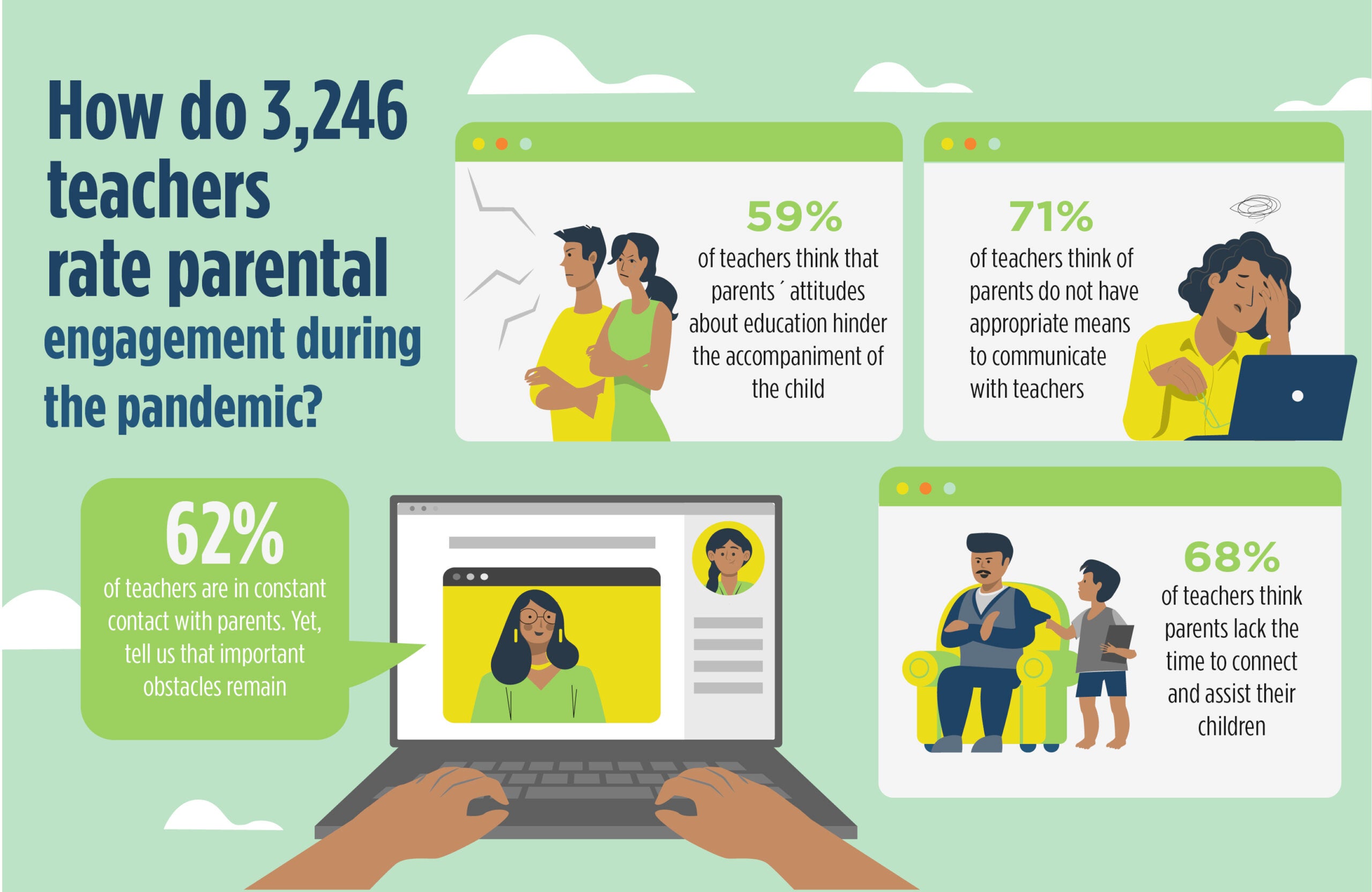The COVID-19 pandemic forced a complete overhaul of the work of teachers, likely larger than the pandemic-related changes to any other profession. From one day to the next, teachers worldwide were asked to abandon face-to-face instruction and create entirely remote learning environments for their students. In Latin America and the Caribbean (LAC), these far-reaching changes in what education looks like offer an opportunity for sustained change to help strengthen the skills of teachers. To seize on this opportunity, education policymakers need to understand what worked and what did not in this giant experiment of remote teaching.
To begin to explore this question, the Ministry of Education in El Salvador (MINED), with the support of Innovations for Poverty Action (IPA) and the Inter-American Development Bank (IDB), asked 3,246 teachers about their experiences with El Salvador’s emergency distance education program Aprendemos en Casa (AeC).
During the swift transition to remote learning in early 2020, we found that schools and teachers had deployed many effective strategies and channels that may be worth preserving and building in post-pandemic times. As with any hasty change process, we also find challenges to be addressed to ensure learning for all students. Here we share seven notable takeaways for education systems.
- Teachers are at heightened risk of burnout. The schooldays never end as teachers feel that are on call 24/7. Across the world, a lot is being asked by teachers right now. Around 60% of teachers report feeling overwhelmed in the midst of non-stop WhatsApp messaging and phone calls with parents. Over half of teachers (53%) report some type of stress related symptom; a third think that too much is demanded of them, and 17% have feelings about failing in their tasks as teachers.
- Teachers and principals are constantly in contact, focusing mainly on systems to keep students learning at home. Almost all teachers state that they have communicated with their principal at least once in the past week, usually through a combination of cellphone calls (76%) and WhatsApp messages (88%). The issues centered around roles and responsibilities in the implementation of the emergency distance education program AeC (66%); how to interact with families (64%); and information about programming of radio and television lessons (54%).
- Most teachers regularly retrieve instructions for how they should implement AeC. Teachers typically use a combination of strategies and devices to find out about learning goals and plans, the most common of which are television (86%) and MINED’s web portal (44%). Less accessible are the virtual teaching guides, which are only used by one in four teachers.
- The main challenge is to find strategies to keep students engaged. Most teachers (82%) reach out to colleagues through informal communities of practice to discuss strategies for teaching from a distance and keeping students engaged in a chaotic time, as well as the programming of radio and television lessons.
- Teachers worry that remote learning is exacerbating inequities. Teachers tell a story of two groups of students with vastly different levels of parental support. 60% of educators report that parents are involved and keep teachers systematically informed about their child’s progress; 36% report that parents even request complementary learning activities. At the other end of the spectrum, at least 15% of teachers fear that almost none of their students and families are following the educational activities offered to them.
- Around 62% of teachers raise flags about communication obstacles, despite being in constant contact with parents. Most importantly, 71% think that the communication channels – mainly cell phones and WhatsApp – are not ideal platforms for parent-teacher communication. Other main obstacles reported by teachers are that parents lack time to connect and assist their children (68%), and have attitudes about education that are not conducive to learning (59%).
- Teachers’ communication with parents and students is not limited to academics. Even in the best of times, LAC teachers many times assume the role of social workers. The experience of Salvadoran teachers suggests that this role has continued or even intensified during the COVID-19 crisis. Teachers worry about their students’ socioemotional well-being, and 9% report that families contact them with concerns about children’s socioemotional wellbeing.
The Salvadoran national survey is part of a regional study conducted over the past few months where parents and teachers tell the story of how remote learning went. Stay tuned as we analyze the challenges and the areas to build on in LAC education systems.
Entry by Juan M. Hernández-Agramonte (IPA), Emma Näslund-Hadley (IDB), Olga Namen (IPA) and Brunilda Peña de Osorio (MINED)
To whom did emergency distance learning work for? Who was left out? Share your comments with us in the section below, or comment on Twitter mentioning @the_IDB


nice article.thanks